- Home
- Leanne Davis
Wesley
Wesley Read online
Wesley
The Son Series, Book One
Leanne Davis
Contents
Chapter 1
Chapter 2
Chapter 3
Chapter 4
Chapter 5
Chapter 6
Chapter 7
Chapter 8
Chapter 9
Chapter 10
Chapter 11
Chapter 12
Chapter 13
Chapter 14
Chapter 15
Chapter 16
Chapter 17
Chapter 18
Next in Series
Excerpt
Other Books by Leanne Davis
About the Author
Chapter 1
WESLEY
Run. Run! Damn it! My legs don’t react anymore. They won’t obey me. Run. Faster. Harder. Farther. I glance over my shoulder. Damn it! They’re gaining on me. Two cops. Two damn cops jogging after me as I sprint much faster than they can. I charge forward, just in time to spot a chain-link fence. The perfect obstacle—for them! I grab the smooth, round tip of a metal post and swing my legs in tandem over it. No problem. Too easy. I hope the cops, who probably don’t get their food quite as creatively as I do, won’t have the muscles or confidence in their bodies to hop a six-foot fence as quickly—like lightning, really—as I do. I fall, stumbling when I hit the uneven lot below. Why are they freaking bothering to chase me?
These patrol officers who probably rarely ever have to run, let alone sprint, are hopping fences and curbs on cracked, uneven pavement, and pivoting around dumpsters, buildings, and random debris of the small main street area I’m leading them through. This crosses my mind more often than anything. I sincerely hope they don’t get hurt coming after me. If they get injured and also manage to catch me, they’ll no doubt pin the blame on me.
Why are they breaking into a sweat and risking their own damn necks, chasing me through the back alleys of town? I can’t be worth it.
I stole a damn money box. I doubt it held even a hundred bucks. Granted, the lady was seated in front of the local liquor store at her little table. She was sitting on a chair and had a lock box and a sign asking for donations for the local blind charity. No, she wasn’t exactly a fair victim for me to select. The sign claimed the charity worked to employ and provide training and job opportunities for blind people. No. The old lady I stole from isn’t blind. My conscience tweaks, however, as I acknowledge the charity I took it from. The lady might have been in her early sixties, but not a young, vibrant sixty-year-old. She was hunched over, wearing a cardigan and appeared small and feeble. I applauded her choice of locations, in front of the local and only liquor store, catching people before they wasted their money on booze they didn’t need and using guilt to get them to donate when she so sweetly asked for their spare change.
It was too easy. I spotted the old lady collecting money and watched her for maybe twenty minutes. There was no one else around. Just a few customers who dropped in change as they entered or exited the store. I crossed the street, passed closer, smiled at her, and she smiled back. Yeah, that made me feel a smidgeon bad. But still. Lightning quick, just as I stepped nearer to her, I dug around in my jeans pocket as if I were searching for money, and she kept smiling at me, her hands folded together on the table like she suspected nothing. Then, instead of money in my hand, I grabbed her box and turned away with it. I tucked it close to my body like a football against my chest and sprinted across the street. There was a car waiting at the stop sign in front of the liquor store. I ducked behind the vehicle, turned left, and ran down a few blocks before taking another right and cutting through an alley behind the local post office. The car that was waiting at the stop sign took off after me. Hence, my slick cutoff so the car couldn’t follow. The tires squealed, and I could imagine their obvious frustration when they realized they couldn’t chase me.
No doubt, that’s who called the cops. Minutes later, I hear their shrill sirens as I quickly take off down the central walking path that bisected the town. I pass people here and there, ducking around strollers and couples, clutching the metal box tightly. I flip behind a tree with branches that dipped all the way to the grass and quickly flick the box open. Old lady didn’t bother to put the lock on it as she sat there collecting her change. I reach in and grab the loose paper bills, tossing the box and change to the ground at my feet. Stuffing the bills, mostly fives and ones, into my sweatshirt pocket, I quickly peek out. I hear the sirens but see no one, so I eagerly take the lucky break and hop back onto the path. Up ahead it crosses in front of a chain tire store. I ditch the landscaped path to go behind the store, which is wooded and hilly. I make my way through the shadows of the trees and bushes.
I eventually step out of the small woods into a neighborhood. As I turn down another side street, I slow down, walking nonchalantly. But come on, it’s freaking Silver Springs, Washington. There is no one out and about right now. There is no way to blend into the crowd as there is no crowd. It’s hard to miss me walking around. I hear the roar of sirens behind me once more. The cops jump out, and I pivot right, darting into a yard, hurdling over the small gate and running through the backyard, again jumping the fence, hitting the woods above the tire store in a half roll, half run and scurrying down the leaf-laden ground, hidden only briefly by the foliage. Then I’m back to the street below, which is where I start sprinting off the road and zig-zagging through the backyards of houses before returning to the main street.
I’m not breathing hard yet. I’m almost grinning. They aren’t going to catch me. My legs are pumping furiously. My thighs are straining, and all the muscles are engaged. I’m in better shape than those two cops combined. One is pudgy and overweight, and the other is balding and wearing spectacles. So, my guess is neither are in their aerobic prime.
I am, however. I relax my pace when I see them over my shoulder, struggling to climb over the high fence. They can’t do it. Well maybe if they grabbed a ladder. Or a stool. Maybe an electronic lift. I smirk.
I’m running still, but calmer now until I cross the road and drop down on a bulkhead made from railroad ties. It provides a five-foot high berm between the beach below and the road above. I scramble towards the pier on my left. It attaches to the land, right at a high spot on the road, with permanent posts that hold it up. There’s plenty of room to crouch under it and tuck my body up towards the berm. I flop down, sitting on the dry, fine sand under the pier. The dock juts out towards the water with a wooden ramp that slopes down where the dock splits up into three rows of boat moorage. Several boats bob gently in the waves. Some of them are used for fishing and made of metal, while several more are much flashier, including fiberglass ski boats and jet skis. There are two large sailboats and four houseboats of various sizes.
The Columbia River undulates underneath them all. The wind blows continuously and the white-capped waves rush towards the shore, bobbing the boats and docks up and down. The piers hold the dock firmly against the fast current. Boats mill about on the river or troll along it. Downriver from that, but far off in the distance, I spot the piers that line the Oregon side of the river. A large ship called Panama is tied to one of the massive docks. For hours on end, grain falls down large metal shoots into the bowels of the ship. The June sun is out early, making it warm and pleasant. I pull out the change I stole. Counting it, I learn I’m a hundred and six dollars richer. More than I hoped for. It nags at my conscience. Charity for the blind becomes charity to me. It’s likely that the woman I stole from is shaken and upset, losing all her faith, if she had any, in society and mankind.
But I needed the money.
Why? Because Jacey needs it. She’s my friend. And with only a few of those, I’m willing to go to extremes for them.
I�
��ll need to leave town, even though it’s a good spot. I like the trees that appear before and after the idyllic village and there are plenty of riverfront lots with comfortable spots to hide and relax. The river is glorious in the morning sunlight. In other places, I find myself in some ugly-ass building with dumpsters and a view of the neighboring brick building. Here? I get to stare at the water, the boats, the ships, and the numerous but very entertaining tugboats.
To the left of the pier are the docks for Foss tugboats. Three are moored to their docks, and I see one boat that is super high, almost like a lighthouse, that they use to push the various barges going up and down the river. The other two tugboats are lower with squattier wheelhouses, but their massive engines vibrate from miles away. They run up and down the river both frontwards and backwards, which freaked me out the first time I saw it. The damn boat was running upriver—backwards. It made me laugh. Staring past the tugboats, I see another marine-type building, then a house on a dock that looks like it might sink at any moment. I’d be hesitant to shut my eyes or try to go to sleep on it. The moss that hangs off its pilings and on which it is constructed seems to be all that’s supporting it. Beyond that is a rusted-out warehouse that obviously was used to launch boats, judging by the metal slides and concrete that dip down into the river.
And past that, way, way downriver, a loaded barge stands anchored, sitting idle. It’s moored off the beach with nothing but grass, sporadic trees and white, sandy beach between it and me.
I stare at the barge. I don’t see anyone around it. The barge holds piles of something white. Gravel? Sand? Imagine if that should sink? I wonder what would happen if one of these giant ships chugging their way up to Vancouver or Portland ever sank. Would all the cars or logs or other cargo they carried settle to the bottom of the river? It must have happened more than once.
But those musings have to be saved for another day. Today, I have to stay quietly hidden. I spend the rest of the day making pictures in the sand and sleeping under the pier. I stuffed my backpack up by the old boat warehouse and wait for sunset before I emerge from my cubby hole under the pier. I hope the police search is long over and I grin with a grim sense of annoyance. I want to be way outta here before morning. I’m in the Columbia River Gorge and it’s all very nicely contained along the river. I worry that if the police are looking for me in Silver Springs, they will extend their search up and down the river and include the neighboring towns along the way as well. My best bet is to stay here. Remain hidden. Just for a while. Which totally sucks. I really want to get out of here. That barge could be the hideout I’m looking for.
Once darkness hides the land, I keep my movements strictly confined to the beach and past the tugboat offices as well as a few riverfront homes. I duck down towards the abandoned lot of overgrown bushes where I left my stuff and pull my precious pack out of the bushes. It’s everything I have or need in the world along with the hundred and six dollars. I quickly scrounge around for the granola bars and apple I left there and scarf them down without hardly tasting them. Then I rise up to my full height, slinging the straps of my pack over my shoulders as I head towards the barge.
Entering the woods, I drop down to the beach that runs parallel to the barge. I see TIDEWATER written across the green side as the waterline dips between two slight crests. No one sees me. I undo my boots and socks and slough off my jeans and shirt. I shove everything into my backpack. I keep my underwear on and grab the fistful of cash. I put a baseball cap on and stuff the cash underneath it. Almost everything I own is in its own plastic garbage bag inside my backpack in my attempt to keep it dry from any rain I might encounter. I don’t normally submerge the entire pack, however, so I have to assume things will, at a minimum, get damp from so much water exposure.
I stick my feet into the water. It feels warm even in the cooling twilight. The water is clear now and almost free of the spring melt that churned it into a brown mess only a few weeks ago. The sand squishes between my toes. I step in further and inhale sharply as the water reaches my waist. I scan around once more. Nothing. I glance back towards town. It’s mostly just lights from here. Nothing alarming catches my eye.
With a grim sense of purpose, I lift my feet off the river bottom and float for a moment, getting my bearings before taking long strokes and swimming out towards the barge. In no time at all, my pack is waterlogged and unreasonably heavy. I keep my strokes strong and fast but my breathing hitches. Crap! This is hard. Will I make it? The river’s dark now and it’s all around me. There’s nobody watching so if I vanished under the dark surface, no one would ever know I drowned. Well, that is, until my body washed ashore. Maybe they’d run a dental scan, or try to follow the long, winding, morbid history of my foster care that ended four years ago when I found the courage to run away. That was when I vowed never to appear on the grid again.
But damn it—I do not want to die being unknown and unidentified near the shore of a river in some town I don’t recognize. I have to reach the metal ladder that dips into the dark water from the side of the barge. It’s there and not so far away. A hundred feet left to go… ninety… crap. It’s so heavy! My wet backpack feels like a concrete anchor now. Farther from shore than it first appeared, the barge undulates and remains just out of my grasp. I stop, pausing to tread water. I catch my breath, but my muscles are cramping. My legs pump to hold up the weight of the pack. Do it! Keep going!
Damn! Am I going to make it?
DANI
“Hey, Dani. I love you, hon, but go home.” I turn when Chloe Willapana walks up behind me, a giant smile on her face as she squeezes my shoulder when she passes me.
I grin back at her. “I’m just going to finish these,” I say as I fill the condiment dispensers at each table of Chloe’s Corner Café. Chloe hired me three years ago for an after-school job and now I work full time there every summer since graduating high school. This school year I’m working on a degree from a nearby community college. She’s always saying I work too hard and too long. I see it as doing what it takes to do a good job. I don’t leave until my tasks are completed and my customers are served to their satisfaction. That’s just how I roll. Doesn’t seem like anything exceptional. It’s how my dad raised me, and it’s just what you do. But Chloe’s always on me about it and telling me to go home early or charge for the extra time I stay.
Especially at closing hour.
“I don’t like you walking around alone,” Chloe warns me.
I roll my eyes. Silver Springs is as safe as any place I could imagine. Its population doesn’t even hit a thousand people. But I shake that off. Chloe’s twin sister, Ebony Kincaid, was murdered just beyond the town limits by a woman obsessed over Ebony’s husband. It totally rocked the area seventeen years ago. As I kid, I remember my dad telling me the sad story. It turned out to be a love triangle gone wrong.
I respect Chloe too much to brush off her concerns. “Wyatt will meet me.” He’s not really going to but saying that reassures Chloe. I roam around the area too often to start being afraid now. After I finish up the condiment refills, I set the supplies in the kitchen pantry and other storage areas. I untie my apron and hang it in the staff room with the others. Then I slip my light windbreaker on and grab the small bag I prefer to use as a purse, pulling it over my shoulder. It closes by a string and looks more like a backpack. I disappear out the rear door after giving Helen, one of the cooks, a warm smile of goodnight. She’s busy washing up the final round of dishes and we are the last members of the staff still there tonight.
My heart lifts when I get outside. It’s a lovely June evening. Stars are shining, and a huge, bright, round moon glows over the mountains across the river, trailing a path of white light that shimmers on the river’s surface. Oh, I love it here! I love the dramatic mountains that rise sharply on the Oregon side of the massive Columbia River. I also love the softer mountains that define Silver Springs and the Washington side of the river. I love how the river separates the two states right there before me. I
love the river in all its moods and all kinds of weather, and in the light of day and night, and the subtle differences each season brings to it.
Now I’m enjoying the pleasant air of an early summer twilight. The heat of the day is covered in darkness, but the sun’s radiant energy keeps the air comfortably warm. I don’t want to go home now. I don’t turn that direction, but head towards the back side of town and down to the riverfront.
The café sits on a corner where the two main streets of the town intersect. I head towards the back streets, off the main highway into a scattering of houses and apartments. I walk towards the baseball fields, now empty. After I pass them, I start up the hill towards the park. The public land drops down towards the river and has hiking trails and public access for fishing. There’s a historic walking trail featuring one of the original towns that was washed away in an epic flood in 1894. It happened long before the dam was built that now keeps the river from releasing that type of devastation.
I walk the trail, allowing the moon to guide me. The river is quiet now after the usual afternoon of whitecaps and wind. Gusts create a tunnel-like effect in the afternoon. Silver Springs is downriver from Bonneville Dam, the last dam on the Columbia before it feeds into the ocean. The town was first founded when the dam was being built. Many dam workers now comprise its population, including my dad.
I drop down towards the shoreline and pass the old Zelton boat works and tugboat landing. I stay on the beach, avoiding the woods, and enjoy the moon over the water as it reflects off the opposite wall of mountains.

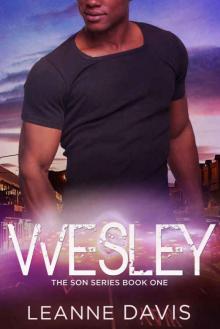 Wesley
Wesley River's Winter
River's Winter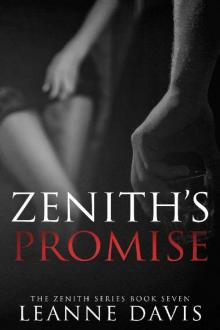 Zenith's Promise (The Zenith Series Book 7)
Zenith's Promise (The Zenith Series Book 7)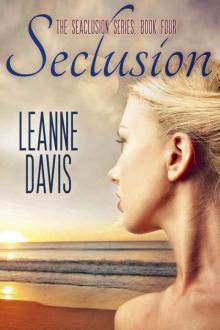 Seclusion
Seclusion Christina
Christina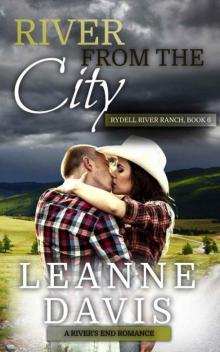 River from the City: A Small Town Contemporary Romance (Rydell River Ranch Series Book 6)
River from the City: A Small Town Contemporary Romance (Rydell River Ranch Series Book 6) Devon
Devon At the Next Table
At the Next Table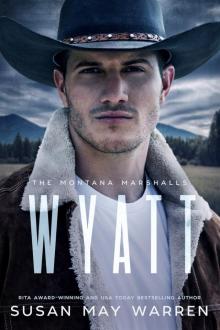 Wyatt
Wyatt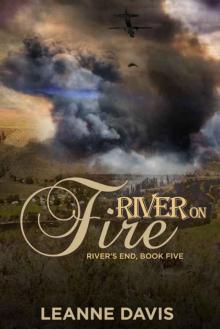 River on Fire (River's End #5)
River on Fire (River's End #5)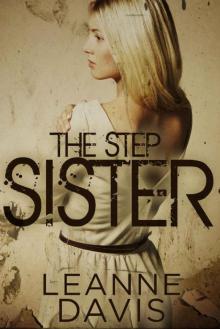 The Step Sister (Sister Series, #10)
The Step Sister (Sister Series, #10) River's Destiny (River's End Series, #8)
River's Destiny (River's End Series, #8)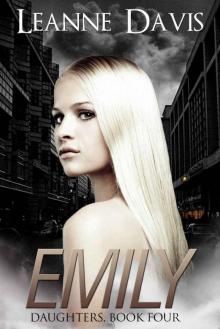 Emily (Daughters, Book #4) (Daughters Series)
Emily (Daughters, Book #4) (Daughters Series) The Other Sister (Sister Series, #1)
The Other Sister (Sister Series, #1)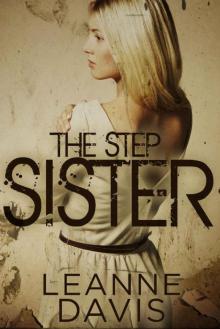 The Step Sister
The Step Sister Damion
Damion The Broken Sister (Sister #6)
The Broken Sister (Sister #6) Rivers Rescue (River's End #9)
Rivers Rescue (River's End #9) Rivers Rescue
Rivers Rescue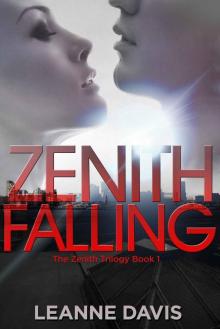 Zenith Falling (Zenith Trilogy, #1)
Zenith Falling (Zenith Trilogy, #1)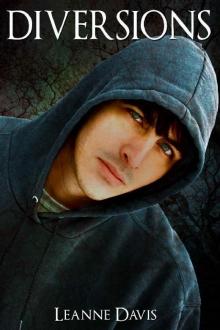 Diversions
Diversions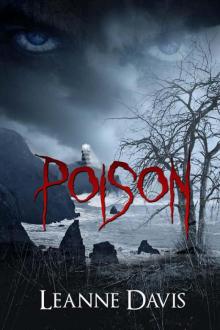 Poison
Poison Melissa (Daughters Series, #3)
Melissa (Daughters Series, #3) The Wrong Sister
The Wrong Sister The Years After (Sister #5)
The Years After (Sister #5) Zenith Rising (Zenith Trilogy, #2)
Zenith Rising (Zenith Trilogy, #2) The Lost Sister (Sister Series, #8)
The Lost Sister (Sister Series, #8)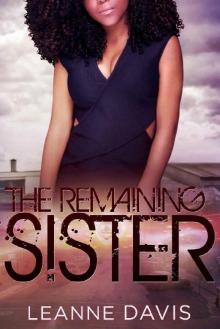 The Remaining Sister (Sister Series, #9)
The Remaining Sister (Sister Series, #9)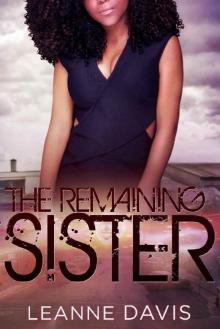 The Remaining Sister
The Remaining Sister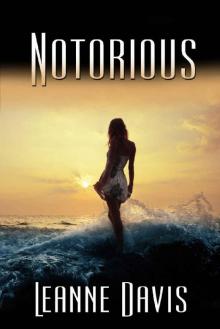 Notorious
Notorious The Perfect Sister (Sister #7)
The Perfect Sister (Sister #7) Christina (Daughters #1)
Christina (Daughters #1)